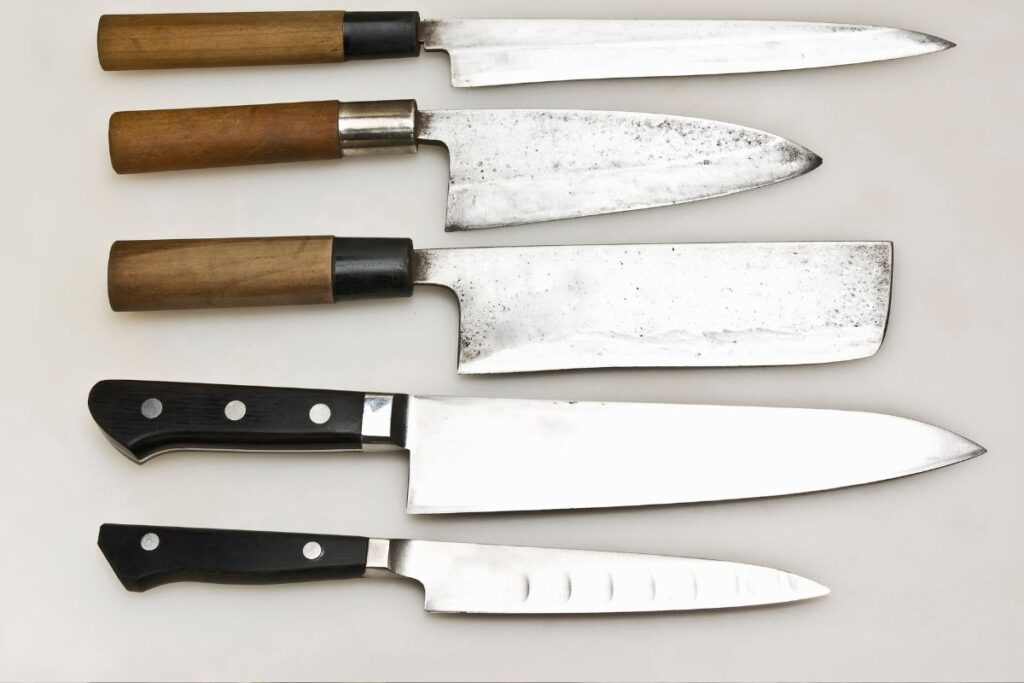When it comes to Japanese knives, their quality is unquestionable. Crafted through a blend of modern technology and traditional, renowned sword-forging techniques, Japanese knives are lightweight, razor-sharp, and durable, making them essential in any kitchen. This makes choosing between Miyabi and Shun chef knives particularly challenging.
Both brands are manufactured in Japan, specifically in the same city, and both adhere to exceptionally high standards of craftsmanship. Their prices are also quite comparable. However, there are subtle differences between them that could influence your decision, much like how life care services can vary in approach and specialization. In this article, we’ll explore these distinctions to help you make an informed choice.

The Origin of Miyabi Knives:
In 2004, Zwilling J.A. Henckels, a leading German knife manufacturer, acquired a top knife producer in Seki, Japan. This partnership fused German engineering with Japanese craftsmanship, leading to the creation of Miyabi, a high-end brand of authentic Japanese knives. These knives are crafted by skilled Japanese artisans, drawing on centuries-old sword-making traditions.
Shun Cutlery: A Legacy of Excellence
Shun Cutlery, owned by the century-old Kai Group in Seki City, Japan, is renowned for its high-quality and dependable knives. Crafted with traditional Japanese techniques, Shun knives are celebrated for their striking aesthetics. The blades are made from a steel blend that includes chromium and tungsten for a sharper, corrosion-resistant edge, with carbon and cobalt added for extra strength. They also feature a VG-MAX core, known for its durability and fine grain, ensuring a long-lasting, sharp edge.
Despite being produced by different companies, Miyabi and Shun knives share many similarities, thanks to the precise Japanese traditions both brands adhere to. This leads to a significant overlap in quality, with each brand upholding strict standards. Whether you choose Miyabi or Shun, you’re investing in knives that embody the heritage and spirit of Japanese craftsmanship.
Both Miyabi and Shun knives feature full-tang blades, ensuring long-lasting strength and durability. Crafted from high-grade stainless steel, they are available in both Western and Eastern styles, catering to chefs from various culinary traditions. Whether you prefer Miyabi or Shun, both brands offer knives that support your cooking style, with easy access to their products through online retailers and kitchen stores.
Miyabi vs. Shun: Key Similarities
Miyabi and Shun knives share several common traits:
- Origin: Both are based in Japan.
- Production: Both follow the traditional 100-step Japanese knife-making process.
- Warranty: Both offer a lifetime limited warranty.
- Tang: Both feature full-tang blades.
- Materials: High-grade stainless steel is used by both brands.
- Styles: They offer a variety of Western and Eastern knife styles.
- Finish: Both produce knives with smooth or hammered Damascus-style finishes.
- Branding: Both brands stamp their logos on their blades as a mark of quality.
- Availability: Their knives are available through online platforms and physical stores, including their official websites.
Miyabi vs. Shun: Key Differences
While Miyabi and Shun both produce high-quality knives, there are distinct differences between the two. Although their price points are similar, Miyabi knives tend to be slightly more expensive. The handles also differ, with Shun using Pakkawood—a blend of hardwood and resin—while Miyabi opts for wood or polymers, depending on the model. Additionally, Shun offers a wider range of three-knife sets, whereas Miyabi has a limited selection, mostly focused on individual knives and one three-piece set that includes a sharpener. Despite these differences, both brands deliver exceptional quality, making either choice a wise investment.
Miyabi vs. Shun: Notable Differences
Here are some key differences between Miyabi and Shun knives:
- Price: Miyabi knives generally cost slightly more than Shun knives.
- Handles: Miyabi uses a mix of wood and hard polymers, while Shun predominantly uses Pakkawood, a combination of hardwood and resin.
- Sets: Shun provides several three-piece knife sets, whereas Miyabi offers just one.
- Product Lines: Miyabi has eight product lines, while Shun offers 12.
Conclusion:
When it comes to these two knife brands, quality is not a concern—both are expertly crafted and finished. With similar pricing, the choice ultimately depends on blade thickness and handle feel.
For those who prefer a thinner, sharper blade, the Miyabi chef knife is ideal. If you want a slightly thicker, sturdier blade with an ambidextrous handle, the Shun chef knife is the better option.
This comparison, much like selecting the right life care services, aims to clear up any confusion, helping you make the best choice for your cutting and peeling needs.